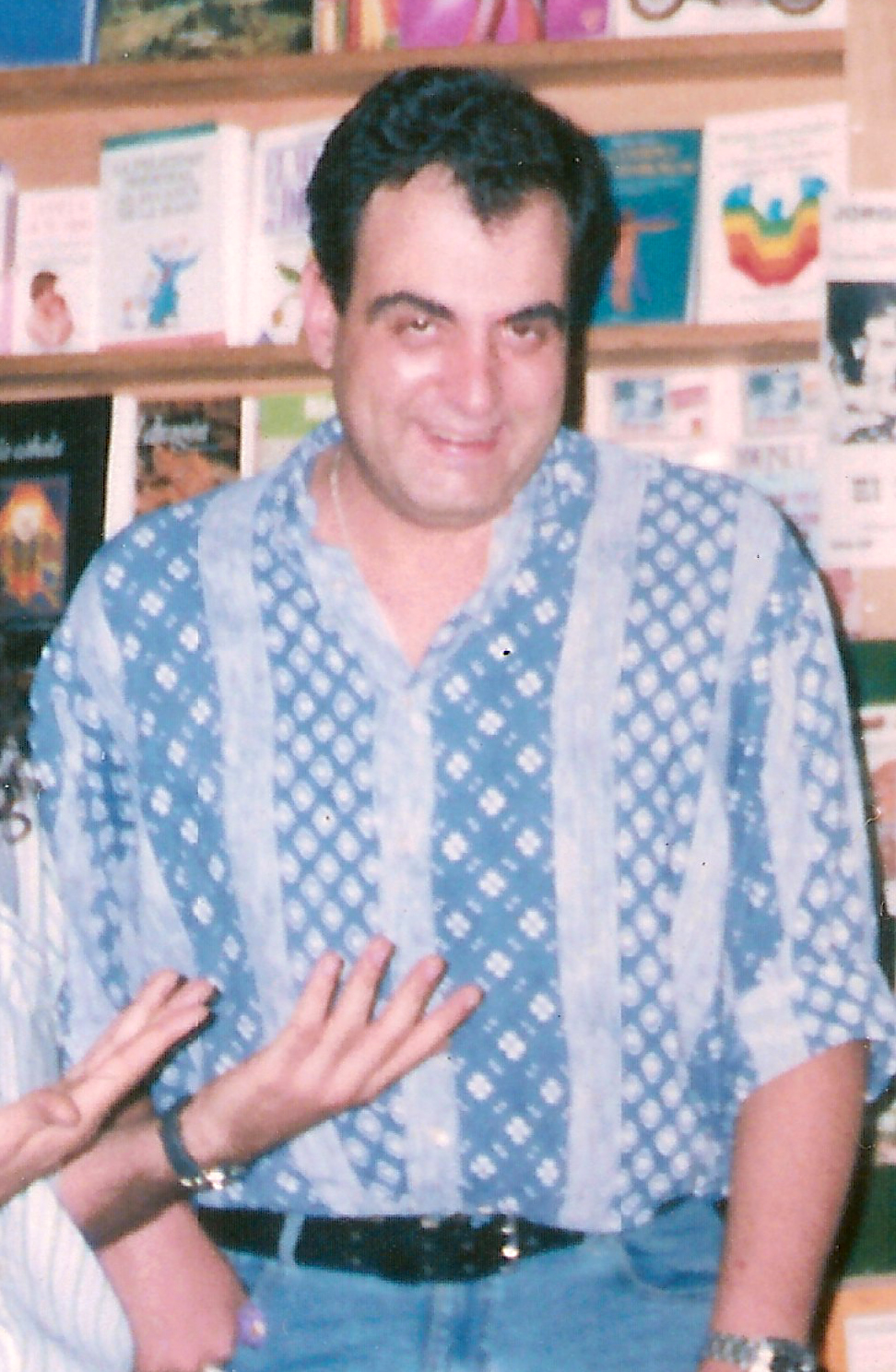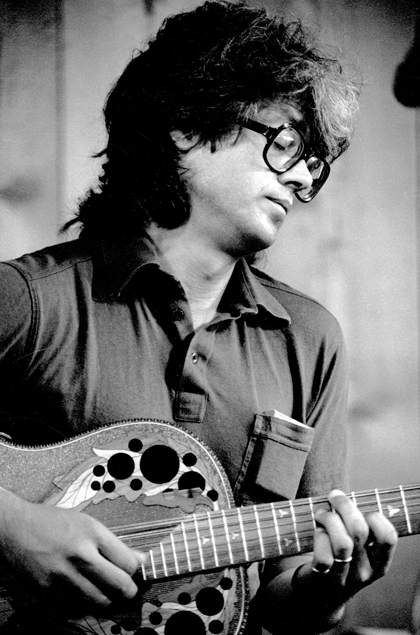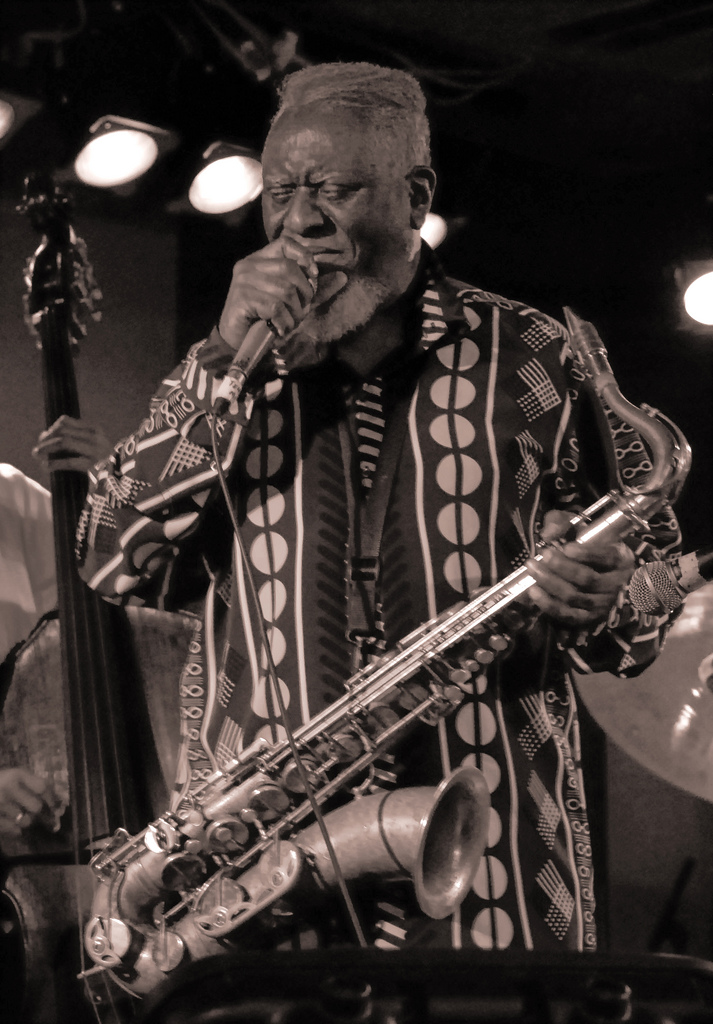|
Jorge López Ruiz
Jorge López Ruiz (1 April 1935 – 11 December 2018) was an Argentine jazz double bassist, cellist, pianist, composer and arranger. Biography López Ruiz was born in La Plata. His younger brother was guitarist, arranger and composer Oscar López Ruiz. After starting out on trumpet, he soon switched to double bass. In 1961 he released ''B.A. Jazz'', his first album as leader, with a quintet featuring Gato Barbieri. On the recommendation of Astor Piazzolla, he studied harmony and composition for Alberto Ginastera in the mid-60's. In 1967 ''El grito'' was released, an orchestral jazz suite with López Ruiz as composer and arranger. Between 1967 and 1970, he was a musical director for CBS in Argentina, working with a number of successful Argentine pop artists, such as Sandro and Leonardo Favio. In 1968, he was part of pianist Enrique "Mono" Villegas' trio, together with drummer Osvaldo López. In the early 70's, López Ruiz formed a free jazz quartet together with saxophonist H ... [...More Info...] [...Related Items...] OR: [Wikipedia] [Google] [Baidu] |
La Plata
La Plata () is the capital city of Buenos Aires province, Argentina. According to the 2022 Argentina census, census, the La Plata Partido, Partido has a population of 772,618 and its metropolitan area, the Greater La Plata, has 938,287 inhabitants. It is located 9 kilometers (6 miles) inland from the southern shore of the estuary. La Plata was planned and developed to serve as the provincial capital after the city of Buenos Aires was Federalization of Buenos Aires, federalized in 1880. It was officially founded by Governor Dardo Rocha on 19 November 1882. Its construction is fully documented in photographs by Tomás Bradley Sutton. La Plata was briefly known as ''Ciudad Eva Perón'' (Eva Perón City) between 1952 and 1955. History and description After La Plata was designated the provincial capital, Rocha was placed in charge of creating the city. He hired urban planner Pedro Benoit, who designed a city layout based on a rationalism, rationalist urban planning, conception ... [...More Info...] [...Related Items...] OR: [Wikipedia] [Google] [Baidu] |
Página 12
''Página 12'' (sometimes stylised as ''Página/12'', ''Página, 12'' or ''Página12'') is a newspaper published in Buenos Aires, Argentina. It was founded on 25 May 1987 by journalist Jorge Lanata and writers Osvaldo Soriano and Alberto Elizalde Leal. Its first president was businessman Fernando Sokolowicz, in 1994 '' Grupo Clarín'' supposedly owned a share. The publishers also distribute a supplement covering Rosario area news, Rosario 12', since 1991. Since 2016 the newspaper is property of Grupo Octubre, a multimedia company created by Víctor Santa María, president of the Justicialist Party in the Buenos Aires. According to in-house surveys, 58% of the newspaper's readership is between 18 and 52 years old and belong to the medium and medium high socio economic groups: AB and C1/C2. History The name of the paper comes from the fact that its preliminary editions as it was being developed had 12 pages. The name had already been chosen, thus the publishers opted to res ... [...More Info...] [...Related Items...] OR: [Wikipedia] [Google] [Baidu] |
1976 Argentine Coup D'état
Events January * January 2 – The International Covenant on Economic, Social and Cultural Rights enters into force. * January 5 – The Pol Pot regime proclaims a new constitution for Democratic Kampuchea. * January 18 – Full diplomatic relations are established between Bangladesh and Pakistan 5 years after the Bangladesh Liberation War. * January 27 ** The United States vetoes a United Nations resolution that calls for an independent Palestinian state. ** The First Battle of Amgala (1976), First Battle of Amgala breaks out between Morocco and Algeria in the Spanish Sahara. February * February 4 ** The 1976 Winter Olympics begin in Innsbruck, Austria. ** The 7.5 1976 Guatemala earthquake, Guatemala earthquake affects Guatemala and Honduras with a maximum Mercalli intensity of IX (''Violent''), leaving 23,000 dead and 76,000 injured. * February 9 – The Australian Defence Force is formed by unification of the Australian Army, the Royal Australian Navy and the Royal Au ... [...More Info...] [...Related Items...] OR: [Wikipedia] [Google] [Baidu] |
Donna Caroll
Donna Caroll (28 May 1938 - 31 March 2020) was an Argentine jazz singer and actress. Life and career Born Linda René Abadi in Buenos Aires, in the mid-sixties she won an audition for Canal 11 and was cast in the musical show ''Show 90'', who gave her immediate popularity. After having strengthened her notoriety thanks to the participation to other shows and to a very popular jingle she recorded for Gancia vermouth, in 1966 she recorded her first album, ''Sol de medianoche''. During her career she recorded songs in Spanish, English, French, Italian and Portuguese and recorded albums in France, Spain and Puerto Rico. She was also a stage actress, specialized in musical comedies. She received several awards, including the Premio Martín Fierro and the Konex Award. After a failed marriage with an Arab businessman, she was married from 1966 until her death with the guitarist and composer Oscar López Ruiz, with whom she frequently collaborated on stage and in recordings. She died ... [...More Info...] [...Related Items...] OR: [Wikipedia] [Google] [Baidu] |
Andrés Boiarsky
Andrés Boiarsky (born October 9, 1957) is an Argentine alto and tenor saxophonist. He is known for his work as a jazz musician and his contributions to the film '' Man Facing Southeast'' (1986). Biography Boairsky was born in Buenos Aires, on October 9, 1957. A 1972 concert by the Duke Ellington Orchestra in Buenos Aires, and a later appearance by trumpeter Dizzy Gillespie, inspired Boiarsky to become a jazz musician. He took part in the local revivalist jazz scene of the mid-1970s as a clarinetist, and subsequently played the alto and tenor saxophones. He was admitted into the National Conservatory of Music, where he was trained in classical music, and in 1978, enrolled in the Royal College of Music in London.''All About Jazz'': Andrés Boiarsky He recorded a solo album for Spotlight Records, and after fo ... [...More Info...] [...Related Items...] OR: [Wikipedia] [Google] [Baidu] |
Pablo Ziegler
Pablo Ziegler (born September 2, 1944) is a Grammy Awards winning Argentine composer, pianist, arranger based in New York City.Oteri, Frank J"Pablo Ziegler: Making the Music Dance" NewMusicBox, July 1, 2014; accessed July 9, 2014. He is an exponent of nuevo tango, and has worked extensively as Ástor Piazzolla's regular pianist from 1978 until Piazzolla's retirement for health reasons in 1989. During their collaboration, they performed with Milva, Placido Domingo, Gary Burton among others. He played with Piazzolla's re-formed Conjunto 9 in 1983 for his Teatro Colón concert with the Buenos Aires Philharmonic. In 1985 Ziegler composed the music for the film '' Adios Roberto'', and in 1990, he established the New Tango Quartet. His playing style, both sharply percussive and metallically lyrical, bears some similarities to that of Vladimir Horowitz as well as some of the wistfulness of Bill Evans. As a composer he has taken Piazzolla's contrapuntal approach to tango music and add ... [...More Info...] [...Related Items...] OR: [Wikipedia] [Google] [Baidu] |
Dino Saluzzi
Timoteo "Dino" Saluzzi (born 20 May 1935) is an Argentinian bandoneon player. He is the son of Cayetano Saluzzi and the father of guitarist José Maria Saluzzi. Early life, family and education Timoteo "Dino" Saluzzi was born in Campo Santo, Salta Province, Argentina. He began playing the bandoneon as a child. His father was Cayetano Saluzzi. Saluzzi has been playing the bandoneon since his childhood. As a youth in Buenos Aires, Dino played with the Radio El Mundo orchestra. Career Saluzzi landed a contract with the ECM label. Several records have resulted, including ''Kultrum'', 1983. From the beginning of the 1980s onwards, there were collaborations with European and American jazz musicians including Charlie Haden, Tomasz Stańko, Charlie Mariano, Palle Danielsson, and Al Di Meola. ECM brought Saluzzi together with Charlie Haden, Palle Mikkelborg and Pierre Favre for '' Once upon a Time – Far Away in the South''. Rava had worked extensively in Argentina, and Haden's s ... [...More Info...] [...Related Items...] OR: [Wikipedia] [Google] [Baidu] |
Jazz Fusion
Jazz fusion (also known as jazz rock, jazz-rock fusion, or simply fusion) is a popular music genre that developed in the late 1960s when musicians combined jazz harmony and improvisation with rock music, funk, and rhythm and blues. Electric guitars, amplifiers, and keyboards that were popular in rock began to be used by jazz musicians, particularly those who had grown up listening to rock and roll. Jazz fusion arrangements vary in complexity. Some employ groove-based vamps fixed to a single key or a single chord with a simple, repeated melody. Others use elaborate chord progressions, unconventional time signatures, or melodies with counter-melodies. These arrangements, whether simple or complex, typically include improvised sections that can vary in length, much like in other forms of jazz. As with jazz, jazz fusion can employ brass and woodwind instruments such as trumpet and saxophone, but other instruments often substitute for these. A jazz fusion band is less likely to use ... [...More Info...] [...Related Items...] OR: [Wikipedia] [Google] [Baidu] |
Argentine Revolution
The Argentine Revolution (Spanish: ''Revolución Argentina'') is the name given to the civil-military dictatorship that overthrew the constitutional president Arturo Illia through a coup d'état on June 28, 1966, and governed the country until May 25, 1973. The Argentine Revolution did not present itself as a "provisional government" as in all previous coups, but rather sought to establish itself as a new permanent dictatorial system later associated with the concept of the bureaucratic-authoritarian State. General view of the self-styled "Revolución Argentina" and the authoritarian-bureaucratic state The June 1966 coup established General Juan Carlos Onganía as the '' de facto'' president and dictator, supported by several leaders of the General Confederation of Labour (CGT), including the general secretary Augusto Vandor. This was followed by a series of military-appointed presidents and the implementation of liberal economic policies, supported by multinational c ... [...More Info...] [...Related Items...] OR: [Wikipedia] [Google] [Baidu] |
Free Jazz
Free jazz, or free form in the early to mid-1970s, is a style of avant-garde jazz or an experimental approach to jazz improvisation that developed in the late 1950s and early 1960s, when musicians attempted to change or break down jazz conventions, such as regular tempos, Musical tone, tones, and chord changes. Musicians during this period believed that the bebop and modal jazz that had been played before them was too limiting, and became preoccupied with creating something new. The term "free jazz" was drawn from the 1960 Ornette Coleman recording ''Free Jazz: A Collective Improvisation''. Europeans tend to favor the term "free improvisation". Others have used "modern jazz", "creative music", and "art music". The ambiguity of free jazz presents problems of definition. Although it is usually played by small groups or individuals, free jazz big band, big bands have existed. Although musicians and critics claim it is innovative and forward-looking, it draws on early styles of jazz ... [...More Info...] [...Related Items...] OR: [Wikipedia] [Google] [Baidu] |
Enrique Villegas
Enrique "Mono" Villegas (3 August 1913 – 11 July 1986) was an Argentine jazz pianist and composer. Life and career Born in Buenos Aires into an aristocratic family, Villegas studied piano under the guidance of the composer Alberto Williams. Trained in classical music, he soon abandoned this genre to embrace jazz. He held his first concert at the Teatro Odeón at 19 years old, and performed his first composition, ''Jazzeta'', in 1941. After forming some ensambles (notably the Santa Anita Sextet and Los Punteros) and collaborating to several recordings, he recorded the first album under his name in 1952. In the mid-1950s he was put under contract by Columbia Records and moved to New York City; after two albums he decided to terminate the contract due to artistic disagreements with the label. He then toured extensively in Europe, United States and Latin America for eight years, before coming back in Buenos Aires where he formed two trio ensambles, first with Jorge López Ruiz and ... [...More Info...] [...Related Items...] OR: [Wikipedia] [Google] [Baidu] |
Leonardo Favio
Fuad Jorge Jury (28 May 1938 – 5 November 2012), better known by his stage name Leonardo Favio (), was an Argentine singer, actor and filmmaker. He is considered one of Argentina's best film directors and one of the country's most enduring cultural figures, as well as a popular singer-songwriter throughout Latin America. Much beloved in Latin America, Favio was one of the most successful Argentine singers in the 1960s and 1970s, with big hits like (with Carola Leyton), , , , , , , , , , , and . He also starred in many films before establishing himself as a director. At the time he began his singing career (mid-1960s), Favio was already an established film director. His first feature movie – '' Chronicle of a Boy Alone'' – and the second one – – are considered to be some of the best Argentine movies of all times. [...More Info...] [...Related Items...] OR: [Wikipedia] [Google] [Baidu] |





